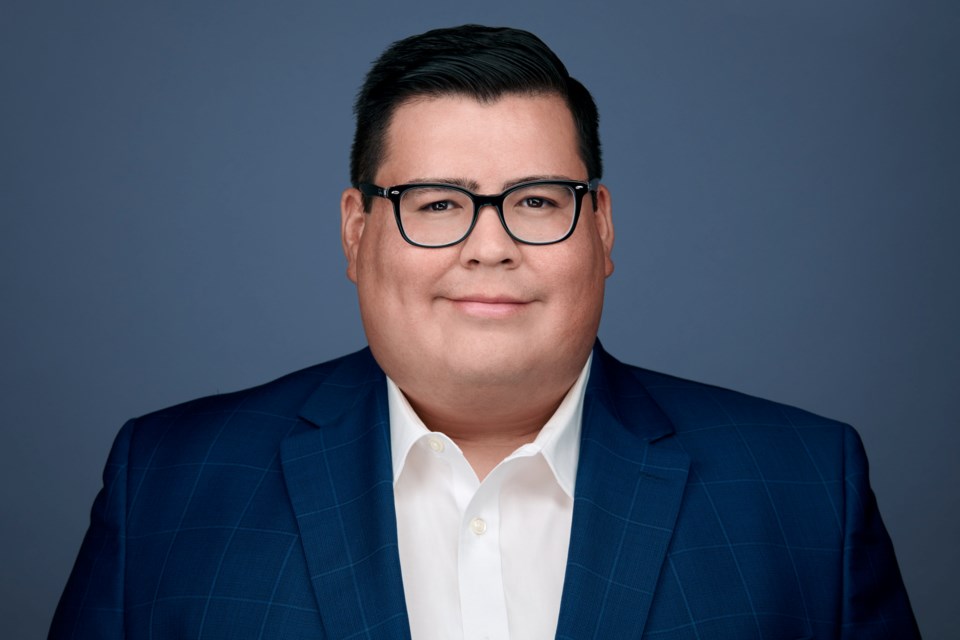Tyson Wesley remembers being evacuated from Kashechewan during the E. coli outbreak that occurred there in 2005.
“I remember the airport and these tents full of doctors and nurses checking us for skin conditions,” he says. “I remember having skin issues and my mother, she contracted E. coli during this.”
The experience, and the illnesses he witnessed, drove home how important clean water is.
“There’s a loss of trust there,” he said. “I still make sure I drink filtered water, that extra level to protect myself. I don’t know about what others feel or think about it, but for me, I was only a teenager, it was so traumatic.”
In 2005, Kashechewan's water supply was found to have high levels of E. coli bacteria. The reserve was eventually evacuated after cases of scabies and impetigo were found in children.
Wesley wants to make sure this kind of thing does not happen again, and he says education, as well as funding has to be front and centre when it comes to the water crisis in First Nation communities.
Out of that want to help, he and his partner, Natasha Commanda, started FN Clean Water, a canned water company, to raise awareness and money to help clean water programs in the north.
“Even today it's still an issue in the north,” says Wesley. “North Caribou Lake is an example, they’re having troubles with water now.”
North Caribou Lake was put under a long-term boil water advisory in March 2021. Feasibility studies have been done in the area for solutions to the water crisis, but it is among the 29 First Nation communities that are under a long-term drinking water advisory, according to the Government of Canada.
“They’re bringing in plastic water bottles, I won’t say to fix the issue, but to alleviate the immediate danger of the water,” says Wesley. “It’s upsetting for me to have to experience that, and to see communities suffer through the same things we suffered through.”
Wesley says that FN Clean Water serves a few purposes.
It's raising awareness of the water crisis in First Nations communities, providing clean water to those in the communities at risk, and everyone else, and reminding people how important clean water is to their health and well-being.
“What better way to talk about water and learn about our issues than drinking water, and having clean water in your hand,” he explains. “I think it’s something that many communities take for granted.”
FN Clean Water is canned instead of using single-use plastic bottles so that the packaging can be recycled and doesn’t create more problems within the environment.
“It came about due to wanting to raise awareness in this ongoing issue,” says Wesley. “There are still communities that are not in a good position with their water system, and the government kind of showed that they are working on it, but as an Indigenous person, it’s not fast enough.”
They’re also working with Indigenous artists to redesign the cans.
“We want to see if we can have their art on the cans, and we want it to be a far-reaching product,” says Wesley. “You’re supporting an Indigenous business, and raising awareness, and the Indigenous art is another part of our circle.”
RELATED: 'Overwhelming' response to initiative sending masks to Indigenous youth
The company is currently working with Water First, which is providing education for young people in these communities to work in water treatment, and water testing.
“They’re doing work in the communities, and as we grow, we’ll be able to do more with them,” he says. “We want to have a social impact, so when you drink water, you’re learning something and getting information that you might not have before.”
This is not Wesley's first time running a business with a greater good behind it.
During the pandemic, he and Commanda started Indigenous Face Masks, which donated a mask to a person in a First Nations community for every mask that was purchased.
They have donated over 46,000 masks.
They're now planning a fundraiser for Orange Shirt Day, as well.
Wesley says that as far-reaching as the water crisis is, education and the stories of those who have experienced these issues can go just as far.
“Our main focus isn’t just to make money, and we’re all connected,” says Wesley. “Our vision and our basis for our company is to talk about their issues and offer solutions.”
He knows the value of water and how not having access to that can be a traumatic experience that sticks with people, and he hopes that FN Clean Water can help make sure another generation of children don't experience the same things he did.
“I remember showering in brown water, and they would tell us not to use it, but what can you do? Not shower for weeks?” he says. “That leaves a mark, what do you tell a kid who is bathing in brown water? How do you explain that?”



